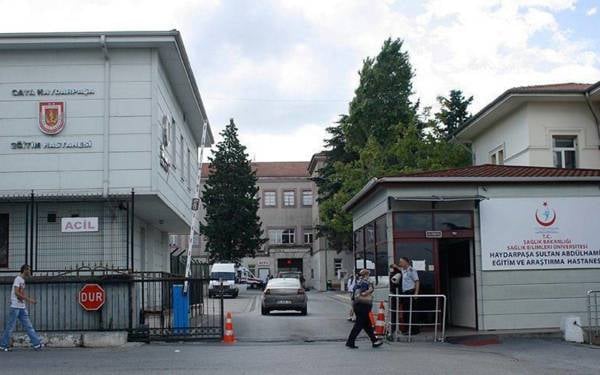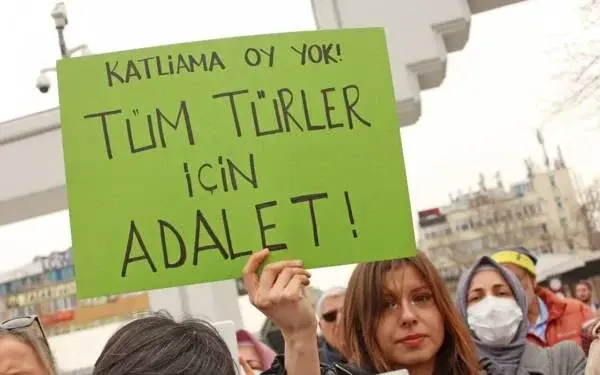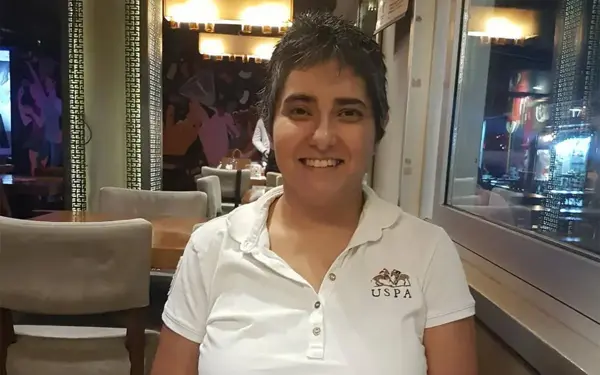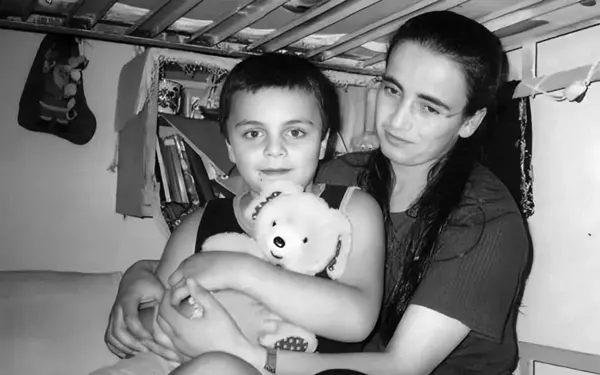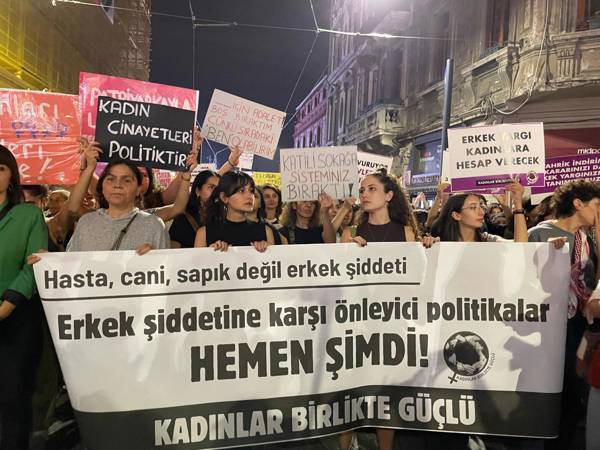Click to read the article in Turkish
As the people whose homes have been damaged in the October 30 earthquake in İzmir continue to stay in tents, organizations from Turkey and around the world are offering assistance to the quake zone.
More than 15,000 people have been left homeless and 114 have lost their lives in the 6.9 magnitude earthquake.
So far, 1,894 tents have been set up and 2,038 more will be added to them, according to the Disaster and Emergency Management Authority (AFAD).
Women who have been solidarizing with the people affected by the quake, especially in the Bayraklı district, the hardest-hit area, have spoken to bianet about the latest situation in İzmir.
"The burden on women has increased"
Gizem Coşkun from the Women's Solidarity Network says, "People are still in panic and there is great uncertainty."
The Turkish Psychologists' Association attempted to set up a voluntary support team for the people but was prevented by the Ministry of Family, Labor and Social Services, according to Coşkun.
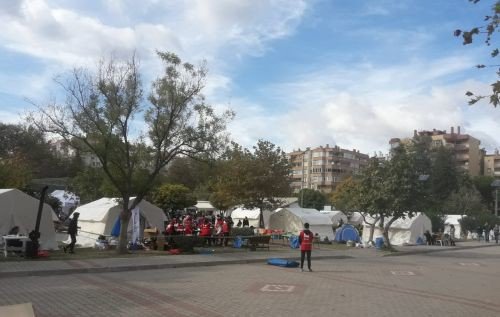
"The Ministry does not lean towards volunteer support. Volunteer psychologists wanted to set up tents, but the ministry didn't allow it. All of the psychologists who wanted to provide voluntary support were professionals in their jobs. Only their [the government's] psychologists are in the area. Only they are allowed. A support coordination center has not yet been fully established.
"People are very worried and these worries are not resolved. There are economic problems, there are hygiene problems.
"Because women can't comfortably talk when buying pads, we give boxes containing the special needs of women to them without their request.
"The care of the children is up to the women. The burden of women is much higher in tent zones. We need to recognize this burden and needs and establish support mechanisms for this in the following weeks. There is a great anxious waiting here. Administrators also need to see this. "
Hygiene and physical distance are the most urgent problems
Didar Gül from the Socialist Women's Assemblies have been working in the area since the day of the quake.
"We have witnessed a lot since the day we first arrived. On the first night there was an atmosphere of panic, there was a lack of coordination, and then it became a little bit more normal," Gül says and adds everyone is still confused and angry although it has been days since the earthquake.
.jpg)
Living in tents is especially difficult for women and children and the most important problems are hygiene and physical distance, says Gül.
"We have especially set up women's teams because women may have more specific needs such as pads. We are trying to meet them, such as hygiene products, feeding bottles, pads, underwear. Other than that, we encounter household needs. In other words, we are bringing together those who say 'I want to give my house for free' and earthquake victims. We have a series of such efforts."
"The struggle for justice"
"The process is more difficult for women and children. Both groups have special needs. Moreover, we are in a period of a pandemic, social distance and hygiene problems need to be solved urgently.
"A mobile shower cabin has been installed but it's insufficient. We are trying to organize movie and fairy tale nights for children. The real issue starts from here. It is necessary to provide shelter for these people. After that, the trial of those responsible for this earthquake and the struggle for justice will begin. This is also on the agenda of earthquake victims."
Gül says that they are working at four zones that have at least 500 tents, which she defines as "a mobilization area."
"Everybody is trying to do their best. Some friends carry supplies, some determine the needs.
"I see in this area that solidarity saves lives. We see here that the current solidarity saves lives, the realization of the saying, 'Solidarity is the grace of the oppressed. The volunteers are in a state of empathy. We are 100 volunteers in this area and 600 in total." (EMK/VK)





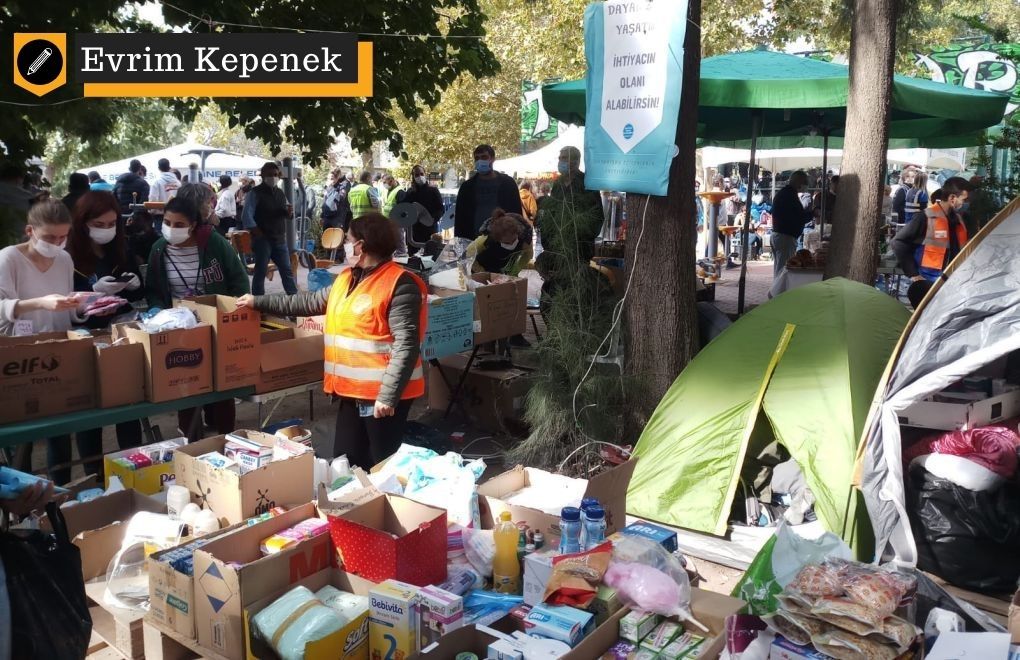
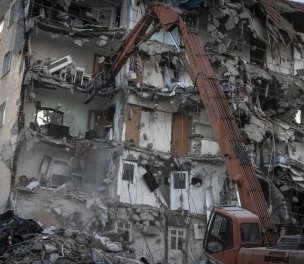
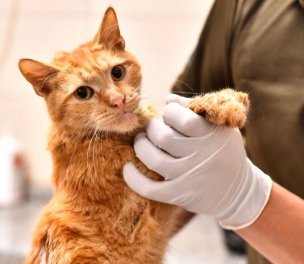
assa.jpg)

